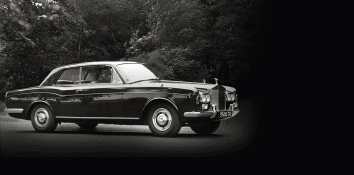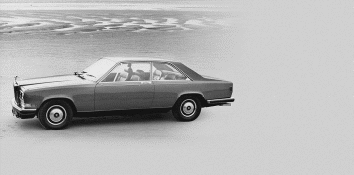Abstract
Economic exposure has affected the profitability of many countries that operate in the global market. The exchange rates for currencies could be highly unpredictable at times. This is the major cause of economic exposure.
One of the companies that have been a victim of this is the Rolls-Royce Limited. This is a multinational company that deals in the manufacture and sale of aircraft engines. The company is based in the UK, but it has operations globally. Most of the company’s operations are based in the US.
Introduction
Rolls-Royce is a company that based in the United Kingdom, but it has operations in many countries. With its headquarters in the City of Westminster, London, the company deals in the manufacture and design of aircraft engines.
It is also a distributor of power systems. Rolls-Royce is ranked third among the world’s largest aircraft makers. In addition, it is ranked 16th among the world’s largest defense contractors. This ranking was made based on the revenues made in 2011. Rolls-Royce suffered greatly financially in 1979 following revaluation of the pound sterling as rated against the USD.
Inflation rate has a significant effect on the profitability of a company. The companies that are most affected are the multinationals that operate in more than one country with different currencies. The market for aircrafts is dominated by the US companies, thus most sales are in the US Dollar.
Any change in the value of the USD against the pound sterling will have a significant effect on Rolls–Royce’s profits. This article focuses on the loss that the company incurred in 1979 as a result of the changes in the US Dollar value against the pound sterling.
There are number of factors that need to be considered in assessing the economic impact on Rolls–Royce. For instance, it is important to acknowledge the fact that the profitability of a company is determined by it pricing strategies and policies, as well as costs. The products of a company could be based on costs.
Under this, the prices could be based on the original costs incurred by the company in its production process, or they could be based on the replacement costs. Either of these bases will have varying effects on profitability. In addition, pricing policies and costs are important in determining the effects of inflation.
Therefore, the factors ought to be considered in determining the economic impact on Rolls–Royce. Another factor that could be considered is the number and nature of the company’s customers. The currencies used by its customers and the inflation rate of those currencies are important factors to consider.
Inflation affects Rolls–Royce exposure and its profitability. For instance, the company is based in the United Kingdom, but most of its sales are in the United States.
The UK currency is the pound sterling, while that of the US is the US Dollar. The profits of the company are calculated in pound sterling. Therefore, the profitability of the company will be affected if the value of the US Dollar falls. The value of the US Dollar will have exposed the company.
Coming up with Rolls-Royce’s economic exposure is easy considering the factors presented in this case. It is important to note that there are a number of ways that can be used to calculate the economic exposure of a company. However, the method used depends on the factors given that affect the company’s exposure. The economic exposure for Rolls-Royce in this case is determined once the Forex Beta is calculated.
The Forex Beta is calculated as follows: “Ri = a + β (S) + ei; S in this case represents the index of monthly dollar exchange rate.” The figures realised from the calculation of Forex Beta will be useful in determining the exposure of a company.
If the figure is positive, it means that the dollar is appreciating. This will be reducing the company’s economic exposure since the overall effect on the company is that its profits are likely to increase when the dollar appreciates. On the other hand, it means that the value of the US Dollar is depreciating if the Forex Beta is negative.
This will mean that the company that makes transactions using this currency is likely to make losses. The economic exposure will have increased in such a case. Given the factors in the case of Rolls–Royce, it is possible to calculate the economic exposure of the company by determining the value of the Forex Beta.
Hedging investments means investing elsewhere to offset the losses incurred from a companion investment. Hedging is important for companies that have investments in various fields. It helps them in reducing the losses that might be incurred from one investment. It is important to note that not all investments will have the same level of profitability.
The losses that Rolls–Royce incurred were as a result of the dollar contracts. According to the case, the company secured huge contracts in 1978 and 1979. These contracts were fixed in terms of dollars. However, the operation costs of the contracts were calculated in pound sterling. This resulted in significant differences in the calculation of the company’s profits.
This led to huge losses in 1979. Since the differences in exchange rates were not expected, the company could have diversified its portfolio to reduce such risks. The risk could be less, despite the fact that the economic exposure could still be there. The company would still incur the inflation risk. However, the losses could be reduced by the profits from the companion investments.
There are four major financial management strategies that a company can use to reduce its economic exposure. These are: Forward contracts, options, money market hedge, as well as future contracts. The hedging strategy has been discussed in the previous question.
The other strategies that the company could have used are the remaining three. Forward agreement is the case where a firm reaches an agreement that it will receive a certain amount of money in the future in the form of foreign currency. The company should obtain a contract that will specify the amount that will be paid in the future. This way, the company will reduce the risk of economic exposure.
Future contracts are similar to the forward contracts, apart from a few differences. The differences include the contract size, maturity dates, and collateral among other features. The effect of a future contract on the economic exposure of a company is similar to that of a forward contract. Finally, there are the options. These are contracts whereby there is an upfront fee.
The owner is given the right to trade foreign currency for the domestic currency. The price for such trade is specified over a given period of time. Therefore, it is possible to reduce the probability of a loss and an economic exposure if a company uses this strategy.
Rolls–Royce still has some engines that are to be supplied in the future under the contracts. It still faces the risk of economic exposure under these contracts. As a result, it is likely to incur losses in the future if no strategy is applied proactively. Apart from the financial strategies, there are some non-financial strategies that could be applied to reduce the risk. For instance, the company could change its marketing selection.
Rolls-Rice should review the demand and supply of its product and the effects on price. Product innovation could also be another strategy that could be effective. Sales and prices would increase if the company improves on its products innovation. The company is likely to make higher profits.
Finally, the company can decide to increase its global production. This would be important in that it will help it offset the risks that might result from the contracts. Losses will be offset by productions from other nations.
Conclusion
Economic exposure is defined as the losses that a company might incur as a result of unexpected changes in foreign currency exchange rates. This is an issue that affects most companies that operate globally. The case of Rolls–Royce was a good example of economic exposure.
The company incurred huge losses in 1979 as a result of its contracts that were based on US Dollar, while its operations costs were in pound sterling. Companies need to come up with ways of dealing with such issues.
Appendix


This is one of the hand-built two-door coaches Rolls-Royce manufactured in the 1970s, despite the challenging times for the company.

This model was also built by Rolls-Royce in the 1970s on a silver shadow platform.